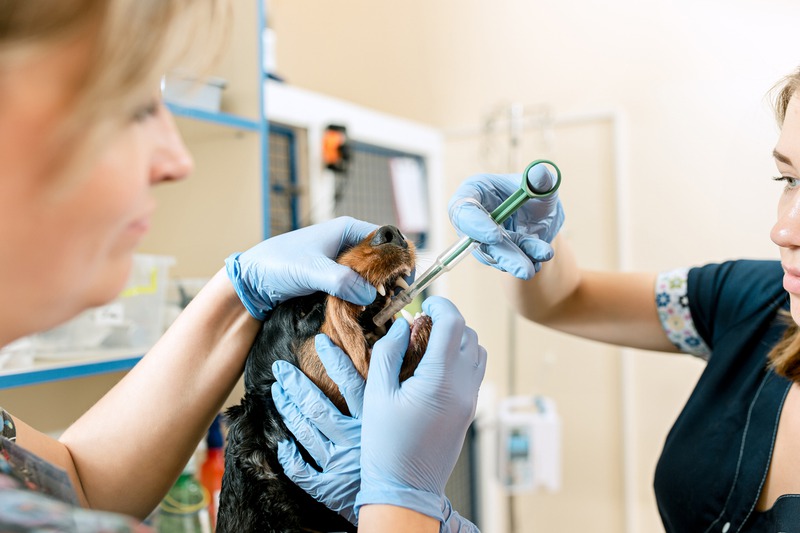Who Should I Contact for Emergency Surgery Needs for Pets?

When your furry friend is in need of urgent medical attention, it can be a nerve-wracking experience. You’re faced with the need to make quick decisions that could greatly affect the well-being of your beloved pet. Understanding who to contact for emergency veterinary care, specifically when surgery is required, is paramount. Let’s walk through the steps you can take to ensure your pet receives the prompt and proper care they need during a crisis.
Immediate Contacts for Your Pet’s Surgical Emergency
The first step in addressing an emergency surgery need for your pet is knowing who to reach out to. This could vary depending on the time of day, the nature of the emergency, and the resources you have at hand. Here are your go-to contacts:
1. Regular Veterinarian
Your pet’s regular vet is a great starting point. They know your pet’s history and can provide personalized advice on whether surgery is immediately required or if it can wait. If the situation unfolds during regular business hours, give them a call straight away.
2. Emergency Vet Clinics
If your pet’s needs arise outside of your regular vet’s hours, seek out a local emergency vet clinic. These clinics are equipped to handle urgent situations, providing services around the clock. A quick internet search or a referral from your regular vet can guide you to the nearest emergency facility.
3. Specialty Veterinary Hospitals
For more complex surgeries or conditions, a specialty veterinary hospital may be your best choice. These hospitals often staff specialists who are experienced in advanced surgeries and treatments. They may also have access to more sophisticated equipment that can be crucial in emergencies.
4. Animal Poison Control Centers
If you suspect your pet has ingested something toxic, an animal poison control center can provide immediate instructions on what to do next. They may advise you on how to manage the situation before you can get to a vet.
The Common Reasons for Emergency Surgery in Pets
Your head might be spinning with worry, but it’s also important to grasp why your pet might need emergency surgery. Some common reasons include:
-
Severe injuries, such as those from accidents or fights
-
Foreign object ingestion leading to blockages
-
Sudden, life-threatening illnesses like bloat in dogs
-
Complications during delivery for pregnant pets
Knowing the signs of distress that require urgent surgical intervention can save precious minutes and, potentially, your pet’s life.
Preparing for the Veterinary Visit
While you’re on your way to the vet or awaiting help, it’s critical to keep your pet stable. This could mean limiting your pet’s movements, keeping them warm, and avoiding giving any food or water if surgery is anticipated. Your vet may provide specific instructions over the phone based on your pet’s condition.
Evaluating Your Options for Emergency Veterinary Care
Pros and Cons of Emergency Clinics vs. Regular Vets
Choosing where to take your pet for emergency surgery is a critical decision. Here are some things to consider:
-
Availability: Emergency clinics are open 24/7, while regular vets have limited hours.
-
Facilities: Emergency clinics may have more specialized equipment and staff trained specifically for urgent care.
-
Cost: Emergency care, especially surgery, can be more expensive than scheduled procedures at a regular vet.
Financial Considerations
Pet surgeries can be costly, and emergencies add financial strain. It’s worth checking if your regular vet or the emergency clinic offers payment plans or accepts pet insurance. Some pet parents also opt to create a veterinary emergency fund or get a credit card dedicated to pet health care expenses.
What to Do Post-Surgery: Aftercare for Your Pet
Once your pet is out of surgery, they’ll need a safe and comfortable space to recover. Your vet will give you detailed instructions on managing pain, administering medication, and scheduling follow-up visits. Sticking to these guidelines is important for your pet’s successful recovery.
Home Care Essentials
Setting up a restful area away from busy parts of the house can help your pet heal calmly. Also, be prepared for potential lifestyle changes for your pet post-operation, such as diet alterations and limited physical activity.
Finding the Right Veterinary Specialists for Your Pet
When it comes to more specialized care, you may need to do some research. Your primary vet can refer you to a veterinary surgeon, or you can research board-certified veterinary surgeons in your area. This can help you find the right professional for your pet’s needs.
For those seeking out a Denver vet experienced in emergency surgeries, it could be your priority. It’s best to have these contacts saved well before any emergency arises.
Using Technology to Your Advantage
Remember to leverage technology in your search for emergency care. Many clinics now offer virtual consults or have apps or websites where you can quickly get information and advice.
Preventative Measures and Regular Care
While we’re focusing on emergency care, let’s remember preventative measures. Regular vet check-ups and initiatives like cat and dog spaying in Thornton, CO, can prevent a host of health issues that might lead to emergencies later.
Regular Veterinary Visits
Regular visits to the vet for check-ups and vaccinations can catch potential health issues early. Early intervention can eliminate the need for emergency surgery down the line.
Moreover, vet care for puppies and kittens is important to optimize health during their early stage. During these visits, your veterinarian can provide advice on diet, exercise, and overall care that contribute to a healthy life for your pet.
Opting for Routine Surgeries
Procedures like spaying or neutering are common surgeries that can reduce the risk of certain emergencies, such as pyometra in unspayed females or testicular cancer in unneutered males.
Final Thoughts
Having a plan in place for potential emergencies involving your pets is crucial. Knowing who to contact, understanding the reasons for emergency surgery, evaluating your options carefully, and ensuring your pet’s aftercare are all integral parts of the process. Remember the role of preventative measures and regular vet care in avoiding emergencies. With these considerations in mind, you’ll be better prepared to act fast and make informed decisions if the unexpected happens to your furry friend.


